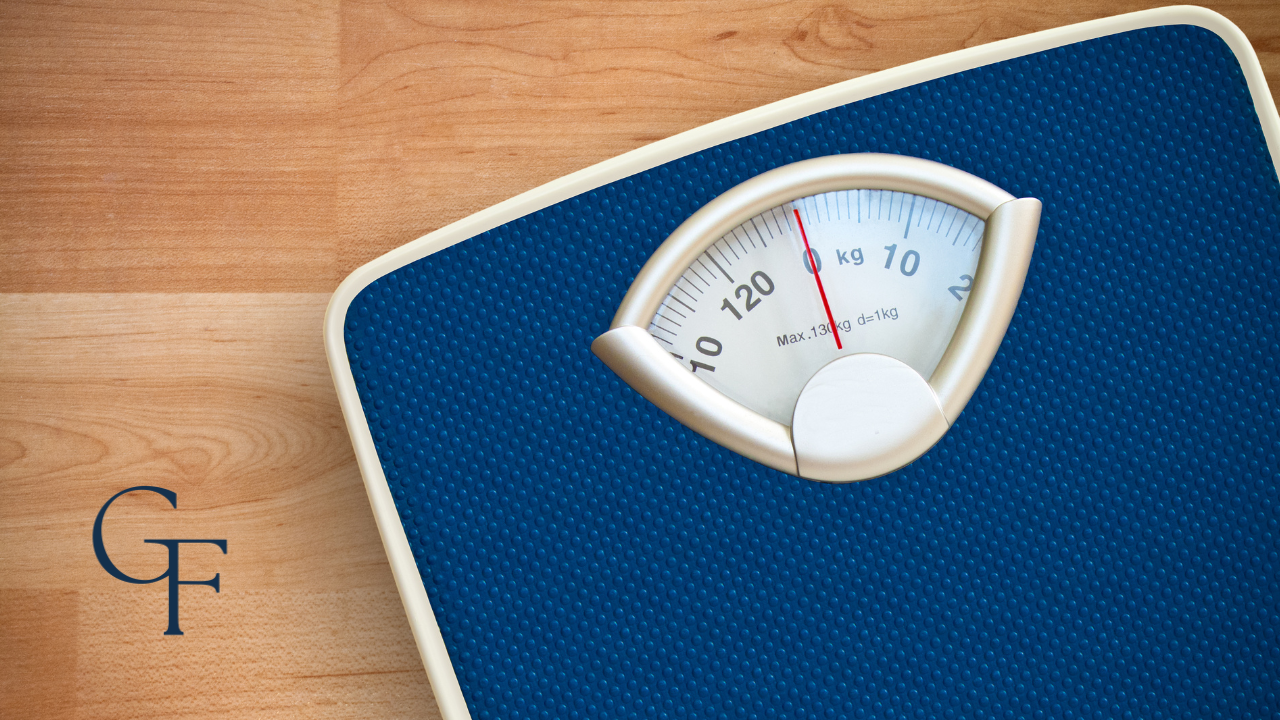
I GET IT...
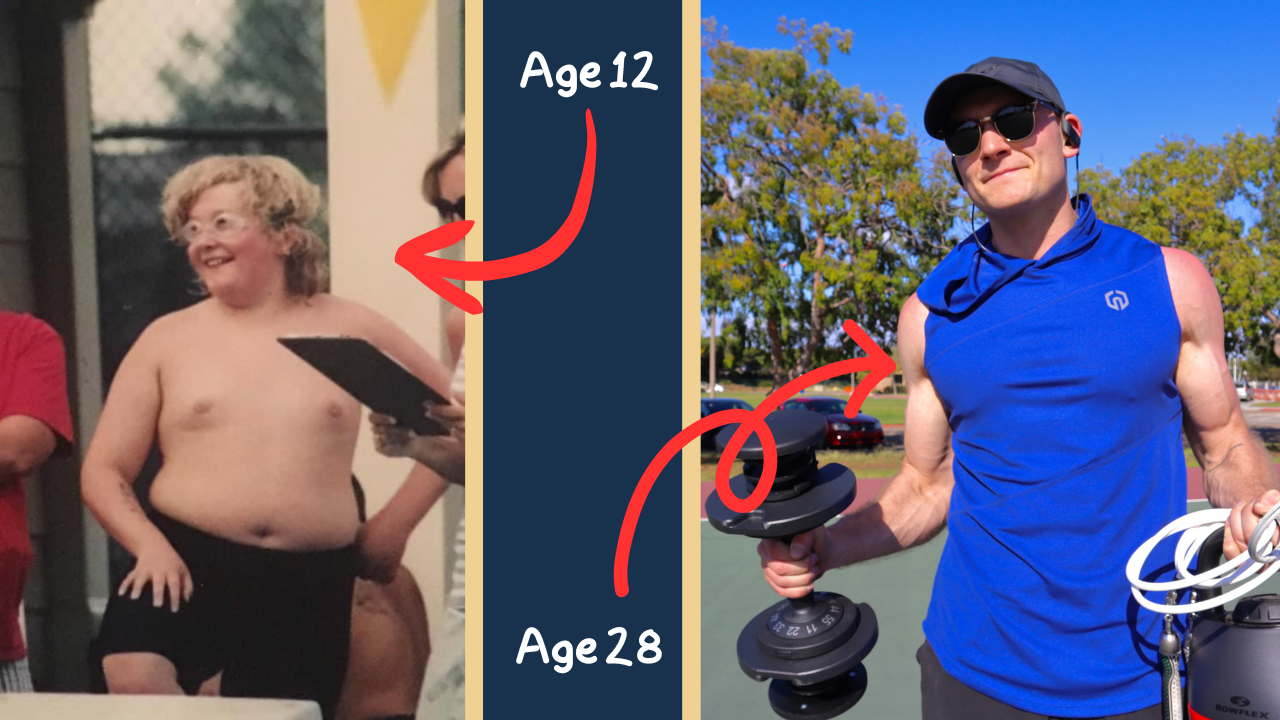
I want to clarify that I'm not a doctor or nutrition expert (please see the legal disclaimer above). Everything I know about exercise and nutrition comes from my personal experience and self-education. Despite not using gym memberships or fancy fitness trackers, I've managed to maintain a lean physique for my entire adult life.
Like a lot of people who begin their journeys to better health and fitness, I was "that kid" who was bullied in middle school for being fat. You know, the classic kid with stretch marks who couldn't do a push-up, climb the rope, run a mile without stopping, etc. I vividly remember those days of changing in the stalls of the P.E. locker room, being the butt of every kid's joke, and going home with a heightened sense of hopelessness.
If my story makes you uneasy, don't worry because everything worked out thanks to my parents. At age thirteen, my mother (God bless her) worked tirelessly to find a "healthy diet" for me to try. Just as Christ did with those He sought to lead and educate, my mother took me by the hand and walked alongside me in my hopelessness, working with me every step of the way. She led by example, following the new "healthy diet" she had found for us and encouraging me along the way.
In the span of a year, my life underwent a dramatic transformation. By age fourteen, I started high school as a trim, halfway-decent-looking young man with a newfound interest in sports. No longer the target of hurtful remarks about my weight, I began garnering positive attention from others (which felt pretty good).
Fast-forward to college and I could run consecutive six-minute miles in combat boots and military fatigues, finish at the head of the pack in timed ruck marches, complete over 100 push-ups in two minutes, and even lead physical training for my NROTC unit, which consisted of prospective Naval and Marine Corps officers.
I'm sharing this with you not to bore or brag but to empathize with any challenges you may have faced regarding weight management. I get it. I've ridden the struggle bus before, and it can be infuriating, but if I can figure it out, you can too.
I also recognize that not everyone struggles with being overweight; some people struggle with being underweight as well. For every "fat kid," there is also that "skinny kid" who is just as tormented by bullies in the locker rooms. Regardless of where you are or have been in the past, this article is designed to equip you with the knowledge necessary to help you achieve a healthy body weight.
NO EASY TRIPS
I don't think a "one-size-fits-all" special diet will work for everyone. However, some critical key concepts regarding weight management can apply to everyone.
The previously mentioned "diet" my mother found for me wasn't revolutionary; in fact, it was unremarkable in terms of what I was eating. It was effective because it was structured and enabled me to be consistent. For the first time, I was more intentional with my food choices.
I always ate "healthy foods" and never avoided fresh fruits, vegetables, or lean proteins. Still, my excess weight was brought about by my lack of physical activity and rather large appetite. Coupled with my unique set of genetics, this resulted in my unintentional weight gain from the age of eight through thirteen.
You could argue that my weight loss was due to puberty or a growth spurt. While that might be true, what's important is that through this experience, I've learned how to adopt genuinely healthy eating habits supported by science and good old-fashioned "common sense," which I believe benefits everyone.
There are no magical foods, special exercise programs, or easy shortcuts to managing weight healthily. It is important to pay attention to our caloric intake, level of physical activity, and the quality of foods we eat to develop healthy habits and reduce our risk of heart disease or high blood pressure. Additionally, we should prioritize consuming whole, nutritious, unprocessed, bioavailable foods to help maintain a healthy body composition.
I know that discussions about calorie counting, macronutrients, and the science of weight management can be overwhelming. This article aims to answer the fundamental questions associated with these concepts.
UNDERSTANDING BODY MASS INDEX (BMI)
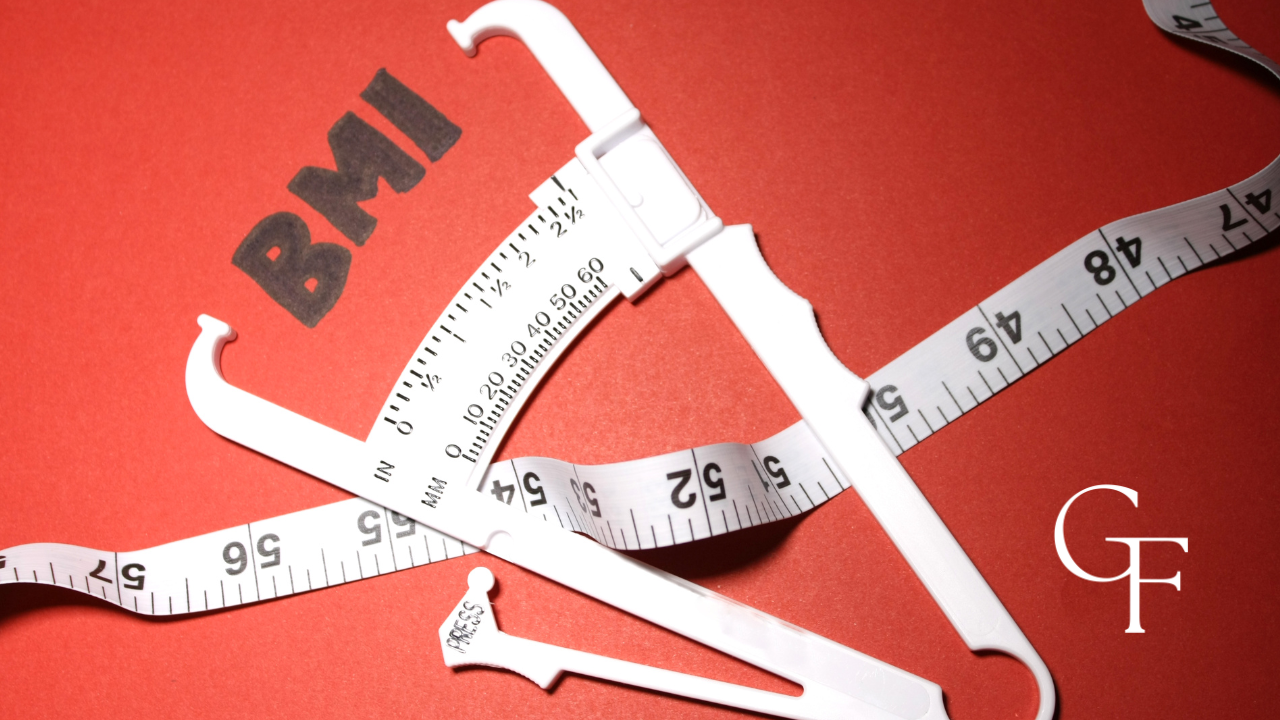
I believe the goal for a healthy body weight should revolve around Body Mass Index (BMI), a ratio of weight to height that estimates body fat percentage. It's important to remember that we are all unique. Some of us are tall, some are short, and we all have different lifestyles. For example, some of us have jobs that keep us active on our feet for hours, while others spend most of their time sitting at a desk. Our biological differences and diverse lifestyles should be considered when setting goals for our weight and altering our BMI.
Our body fat percentage can be calculated in several ways. These methods range from taking measurements and plugging them into an equation to undergoing a relatively expensive DEXA scan. It's important to note that some methods may be more accurate than others. Additionally, various BMI guidelines are available; for instance, the Center for Disease Control (CDC) recently published in March 2024 that for adults, BMI categories include Underweight, Healthy Weight, Overweight, and Obese, with Obesity further subdivided into three classes.
The CDC provides general guidelines for each category but disclaims that BMI should be considered with other factors when assessing an individual's health.
This tells us that BMI is, in fact, a rough estimate of body fat percentage calculated from a person's height and weight. While body fat percentage measures how much a person's weight comes from fat, BMI can be misleading as an indicator of health because it does not always account for additional factors that affect a person's body weight, such as muscle mass, bone density, water weight, and internal organ sizes.
I want to stress that it's not helpful to rely on quick BMI calculators or generic height and weight tables you find online to gauge where you stand in terms of your height and weight.
Using these tools can increase your stress levels by leading you to believe that you're overweight every time you weigh yourself (when, in reality, you might not be). This may cause you to panic and resort to drastically rapid weight loss methods instead of a more sustainable and healthy approach to shedding pounds. Don't fall into this trap!
WHAT IS A HEALTHY WEIGHT?
If you're wondering how much you should weigh, I'm afraid the answer is something only God truly knows, given that He sewed all of us into our mothers' wombs. The good news is that we can all still be healthy and in great shape even if we never step on another scale again. Given our unique genetic makeup, we will all weigh slightly differently even if we are the same height and build as other members of the same sex.
I'm not here to tell you that you should lose or gain weight, and I'm not going to throw out random numbers or percentages that I believe should be considered "healthy" for you (that's a doctor's job). However, chances are you're reading this because you recognize that there is no shame in trying to be better, and perhaps you even sense that we should treat our bodies as the temples God made them to be.
ENERGY BALANCE & MAINTAINING WEIGHT
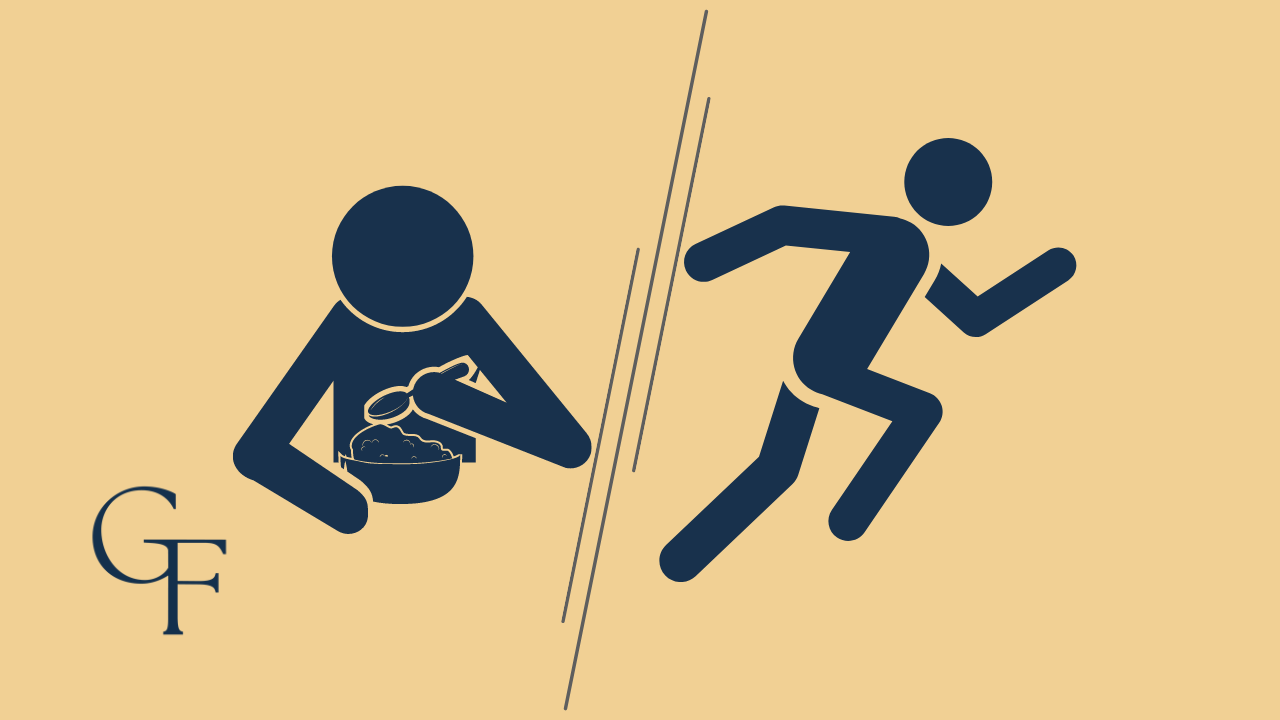
None of us is unique regarding energy balance, the relationship between energy intake (calories eaten) and output (calories burned).
Think of your body as a simple science equation. Everyone has a Total Daily Energy Expenditure (TDEE) – the number of calories they burn daily.
There are three parts to this:
- Your personal Basal Metabolic Rate (BMR).
- Food digestion (i.e., your body's thermic effects on the food you eat).
- Your level of physical activity (how much you move your body).
Your Basal Metabolic Rate (BMR) is a "unique" caloric threshold that remains consistent throughout your life but can adjust as your body changes. Your body determines this threshold at birth based on factors such as your genetic makeup, ancestry, height, weight, and biological needs. This number represents the calories your body naturally burns daily by regulating itself in 24 hours.
CALORIES 101
As for calories, think of them as energy. In fact, one way a calorie is defined is as a unit of energy.
This is because we need to eat to expend energy, but not all calories are created equal (more on this later). If you look on the back of most nutrition labels for food, you will see that the recommended amount of what is presented is based on a 2,000-calorie diet. The number of calories you need may differ from what I or someone else needs (I, myself, require about 2,400 calories daily to maintain my current weight).
Remember this: If you consume your "unique" caloric threshold (for me, it's about 2,400 calories) each day, your body should (theoretically) maintain its current weight. After all, your body needs a specific number of calories to regulate essential functions such as movement, blinking, breathing, pumping blood, etc. This is all part of our BMR.
This brings me to my next point: Our BMR accounts for approximately 75% of our daily energy expenditure. The remaining 25% combines our body's digestive (or thermic) effects on food and the number of calories we burn daily.
MACRONUTRIENTS 101

The information we just covered explains how we maintain our bodies. Before we discuss how we lose or gain weight, it's vital to address calories and their relationship to macronutrients. As mentioned before, calories are units of energy that we need for living and moving.
Calories are comprised of macronutrients, of which there are three:
- Carbohydrates
- Fats
- Proteins
CARBOHYDRATES

Carbohydrates are often our main source of glucose, which provides energy and regulates blood sugar levels. Fast-twitch muscle fibers use glycogen, a form of carbohydrate storage, to fuel intense periods of exertion. On the other hand, fiber is a type of carbohydrate that the body cannot digest. It passes through the body undigested and is known for helping to push food along and regulating our use of sugars, ultimately helping to control hunger and blood sugar levels.
While I don't believe that carbohydrates are essential for every person or that a diet purely focused on carbohydrates is healthy, I can tell you that consuming carbohydrates in the form of fresh fruit and raw honey has some significant benefits, both measured and felt (but that's just my experience).
FATS

Fats are macronutrients that have been misunderstood for decades due to their complexity. They help us on many levels, such as absorbing essential vitamins and minerals as well as repairing tissues. Sources of fatty acids include various oils, seeds, nuts, and animal fats. Essential fatty acids, such as omega-3, serve critical cellular functions and are a necessary part of the human diet because the body has no biomedical pathway to produce these molecules on its own.
Fat also produces chemicals essential for reproduction, immune defense, blood clotting, circadian rhythm, mood, and concentration. Various studies from the American Academy of Family Physicians (AAFP) show the complex nature of fats in the human diet and their necessity for a person's overall health. The jury is still out on whether or not certain fats are better than others, but it is clear that healthy fatty acids are essential for humans.
PROTEINS

Finally, we have proteins (my personal favorite). Protein is essential for repairing damaged muscles and tissues and for further growing and developing them. We also need protein for healthy skin, hair, and nails as well as to regulate many additional bodily functions. Our need for protein increases when we become more active, regardless of its form; however, if you ask me, animal meat and organs are the best options (go easy on me, vegans) due to their often dense nutrition and bioavailability.
HOW CALORIES MAKE UP MACRONUTRIENTS, MATHEMATICALLY

So, how do these macronutrients combine to form the calories we consume? Answering this question requires some calculations. But first, here is what you must know:
- Every (1) gram of carbohydrate found in food equals 4 calories.
- Every (1) gram of protein found in food equals 4 calories.
- Every (1) gram of fat found in food equals 9 calories.
- If we have a food bar containing 27 grams of carbohydrates, 15 grams of protein, and 9 grams of fat, the total calories will be 249.
Because...
- 4 calories multiplied by 27 grams of carbohydrates yields 108 calories of total carbs in the food bar.
- 4 calories multiplied by 15 grams of protein gives us 60 calories of total protein.
- 9 calories multiplied by 9 grams of fat equals 81 total fat calories.
After establishing the relationship between calories and macronutrients, here is how we grasp the fundamentals of managing weight for ourselves.
HOW TO LOSE WEIGHT

To lose weight, we must ultimately generate a caloric deficit. Translation: In order to lose weight, we must consistently burn more calories than we consume. This can be achieved in a few ways:
- Eat fewer calories.
- Burn more calories.
- A combination of eating less and burning more.
Suppose someone claims to have significantly reduced their caloric intake over a long period without seeing any results. In that case, I would bet that they are probably not paying enough attention to some common human errors that are likely impeding their progress. These errors could include underestimating how many calories they burn daily and/or their overall energy expenditure.
HOW TO GAIN WEIGHT
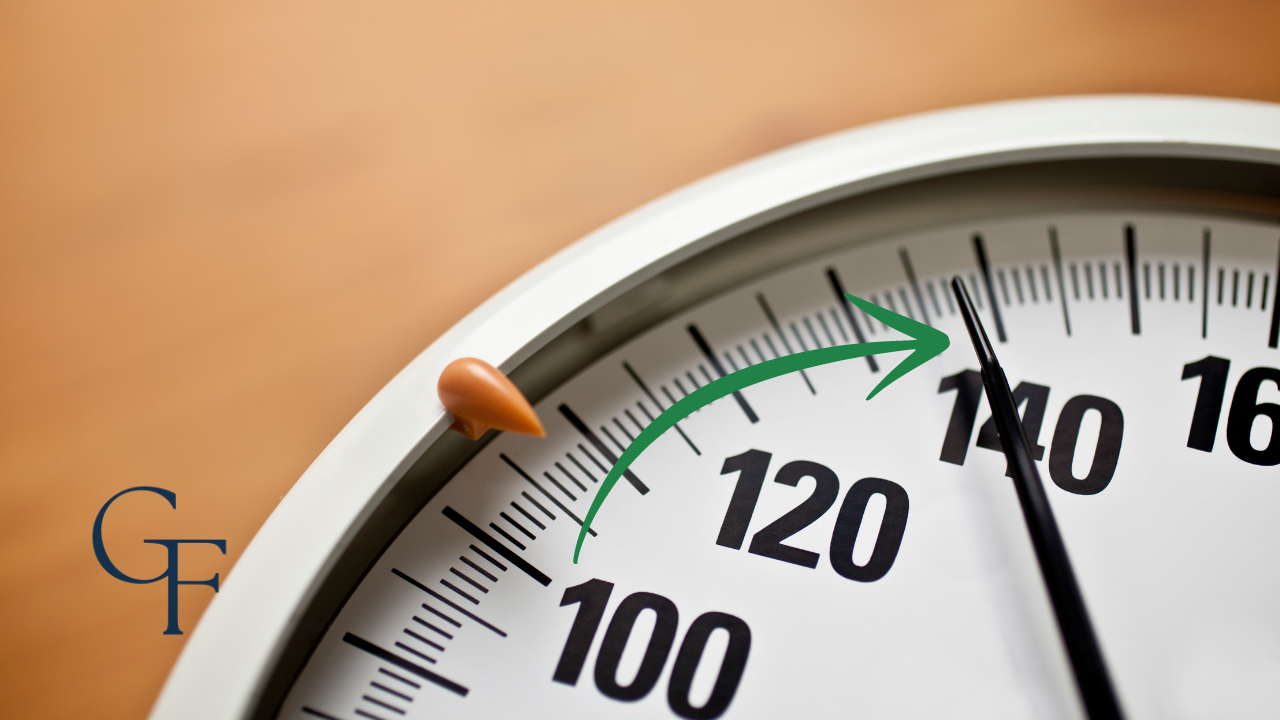
Gaining weight is just the opposite of losing weight. Consume more calories to create a caloric surplus.
We often don't realize how many calories we consume over a long period of time. Eating very little for a day or two doesn't necessarily lead to weight loss over time. Our bodies don't operate on a 24-hour cycle; instead, they respond to our long-term eating habits; therefore, consistency is key!
If we consistently overeat more days in a week than we undereat, there is a good chance that, depending on our individual BMR and level of physical activity, we will gain some weight. This can often lead to frustration or stress.
HOMEOSTASIS
Our body's main objective is to achieve homeostasis, the natural drive to maintain physiological balance and stability within the body while adjusting to external conditions.
In simple terms, the body naturally strives to keep things chemically consistent. For instance, when we feel hungry and start craving food, our senses become more attuned to the smell of sustenance, and all we can think about is eating. In these moments, our body's "set point" for homeostasis compels us to act in ways that enable us to maintain our current biological state.
Due to various factors, managing weight can be challenging, which is why there are many different strategies. Our body's "set point" can make it difficult to initiate change; hence, some people rely on tools such as intermittent fasting for weight loss.
Intermittent fasting enables some people to eat and feel satisfied within a specific time window each day. This can be particularly beneficial for individuals trying to lose weight while dealing with a big appetite. However, it's important to remember that intermittent fasting is a tool for weight loss and needs to be used properly in combination with other healthy habits, not as a standalone solution.
AVOID UNNECESSARY WEIGHT LOSS & WEIGHT GAIN

This is a broad topic, but I want to emphasize that weight loss or gain should always be motivated by a desire to become healthier. It's important to recognize that not everyone needs to change their weight, even if they have set goals to do so. Depriving the body of essential nutrients is never a good idea, just as overindulging in unhealthy foods, such as those high in trans fat, can negatively affect one's overall health. These actions can disrupt our body's chemicals and hormones in potentially dangerous ways and may lead to long-term complications and illnesses.
MICRONUTRIENTS MATTER TOO
I believe it's crucial to prioritize the quality of our diet, not only for weight management but also for overall health. While carbohydrates, fats, and proteins are important, we shouldn't forget about essential vitamins and minerals found in the foods we eat.
When it comes to managing weight and maintaining overall health, there are some key nuances to consider. Effective weight management involves paying attention to both calories and macronutrients, but it's also critical to focus on consuming whole, fresh, organic, nutrient-dense, and bioavailable foods to ensure adequate long-term nutrition.
For instance, it is a good idea to choose organic produce over heavily pesticide-sprayed items. If cost is a concern, consider washing produce with baking soda to remove pesticides.
Of course, the quality of food matters across all types, not just fruits and vegetables. Foods such as animal and organ meats contain essential bioavailable micronutrients that can influence our long-term health, just as healthier fats in raw dairy products are much better than conventional seed oils.
While it's challenging to measure the specific impact of micronutrients on weight management since they don't provide calories per se, focusing on the quality in addition to the quantity of food is necessary for healthy weight management and overall well-being.
IT'S ABOUT BALANCE

The Bible teaches us that our bodies are like temples and should be respected as instruments for doing good in this world. A successful weight management program is all about balance. Too much of anything is never good, and not having enough of what our body needs isn't beneficial either. I hope that you learned something new and useful in this article.
For minimalistic workout ideas, visit the blog's Workout Videos page to access full-body cardio and resistance workouts performed and led by me—no gym membership required.


